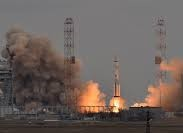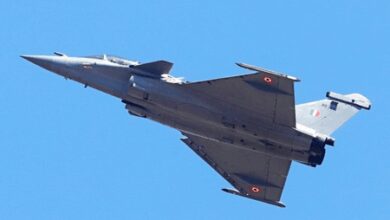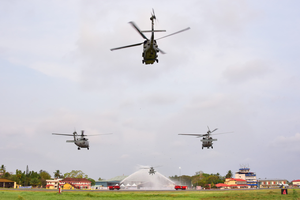Russia’s Baikonur launch pad severely damaged during Soyuz Mission

Moscow, Nov 28 (IANS) Russia’s ability to carry out crewed space missions faces a major setback after a key launch pad at the Baikonur Cosmodrome sustained extensive damage during the Soyuz MS-28 launch to the International Space Station (ISS).
The incident has raised serious concerns that Moscow could be temporarily grounded from sending humans into space for the first time in decades.
The Soyuz MS-28 spacecraft, carrying two Russian cosmonauts and one NASA astronaut, lifted off successfully and docked with the ISS on November 27, 2025. However, post-launch assessments revealed a critical failure on the ground. A movable service cabin, an essential structure that provides crew access to the Soyuz rocket, collapsed into the exhaust trench beneath the launch pad during liftoff.
This service cabin is indispensable for both Soyuz crewed missions and Progress cargo launches. Because Baikonur remains Russia’s only operational site for sending humans to the ISS, damage to this structure poses a direct threat to the continuity of the country’s human spaceflight program.
Roscosmos acknowledged damage to multiple components of the launch infrastructure, saying that repair efforts would begin immediately. The agency maintained that spare parts were available, but space analysts caution that restoring the complex could take several months to as long as two years, depending on the structural impact and safety reviews.
Such a delay would effectively paralyze Moscow’s ability to carry out crewed flights.
The Baikonur launch pad has been used continuously since the 1960s, making the incident an unprecedented disruption to Russia’s space operations.
With the facility offline, upcoming Soyuz and Progress missions could face indefinite postponements, forcing Moscow to consider accelerating the development of the Vostochny Cosmodrome or seeking alternative international arrangements to maintain access to low-Earth orbit.
Despite the damage, Roscosmos confirmed that the Soyuz MS-28 crew aboard the ISS remains safe.
The incident, however, highlights the growing challenges of relying on aging Soviet-era infrastructure and underscores the geopolitical complexities surrounding Baikonur, which is located in Kazakhstan but remains central to Russia’s space ambitions.
–IANS
rs/mr





